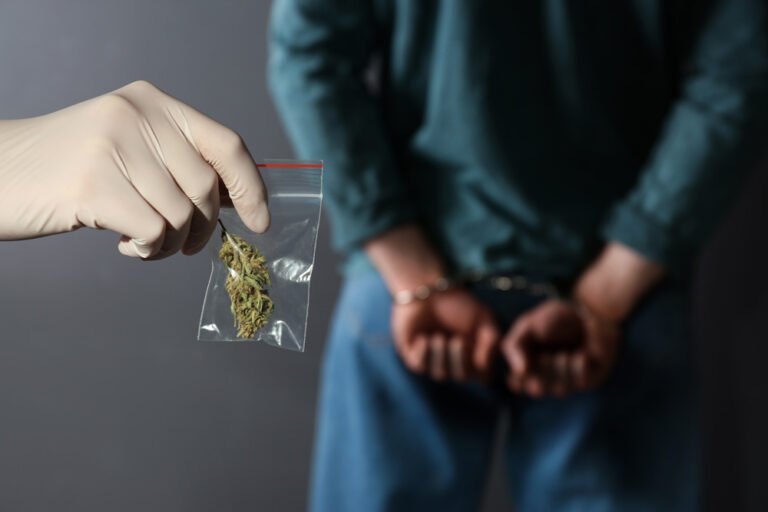

Kevin Baxter | Staff Reporter
SAN MARCOS – For the last two decades, cannabis decriminalization has been sweeping the nation. Mano Amiga, a local progressive organization, is fighting to bring that decision to the residents of Hays County.
On Saturday, September 11 at 5:30 p.m., the San Marcos Public Library hosted a Cannabis Decriminalization bloc as part of the Lost River Film Festival.
Three film screenings were followed by a panel co-sponsored by Texas Cannabis Collective, discussing the topic of decriminalizing cannabis in San Marcos.


The panel included speaker Senator Roland Gutierrez, Representative Erin Zwiener, Sarah Minion and Frankie Wunschel of the Vera Institute of Justice, Sam Benavides and Eric Martinez from Mano Amiga, the filmmakers, and Jake Rankin, a recent victim of marijuana criminalization in San Marcos. The panel mainly focused on cannabis legalization in Texas and the effects that criminalization of the plant has had on Texan communities.
Jake Rankin told the story of his arrest for possession of marijuana, which took place in October 2020. According to Rankin, he and his girlfriend were driving down I-35, coming back to San Marcos from Austin. On the way, they went through a car wash which washed away the paper plates on their new car, causing the police to pull them over on the highway.
Rankin had around three grams of marijuana in the car and admitted to the police that it was his, which resulted in him being booked in the Hays County Jail during COVID-19. Rankin was arrested on Friday around noon and released the next day around 7:30 p.m.
“I just saw the jail fill up over time, not to mention it was 2020 during COVID,” said Rankin. “So, you know, it was just really disgusting in there. I had a mask, luckily. But as it filled up, they weren’t really giving any of the other people masks. It also said on the sign, we could read it from the inside of the holding tank, seven, I think, max capacity. There were 20 people just crammed in there.”
According to Rankin, he was the only person arrested for possession of marijuana that day and shared the Hays County Jail with people arrested for violent crimes and domestic violence.
To bring Jake’s story into perspective with the broader community of San Marcos and Hays County, Frankie Wunschel from the Vera Institute of Justice brought up the numbers of marijuana arrests that have taken place over the last six months.
“Within a six-month period, about 251 people were booked into Hays County Jail for cannabis possession alone,” said Wunschel. “And as Jake alluded to, in the time of COVID, bringing Jake to jail didn’t make our community safer. It actually might have made it less safe. If we cram people together and follow mass incarceration, especially in a time of disease and COVID, and those people go back out to society with really no change because they didn’t need to pay a debt to society and have the possibility of spreading the disease or of recidivism due to their time in the space. There’s an argument that maybe bringing people into jail and prison because of marijuana is actually making our societies less safe.”
Wunschel went on to explain the racial disparities in marijuana arrests throughout the state.
“In Texas, we see that black people are arrested for possession of marijuana at 2.6 times the rate of white people,” said Wunshel. “So, it’s a statewide problem; it’s a national problem. And we also know that research has shown that people don’t use substances at a different rate. So why are we arresting them at a different rate? I think the most startling thing is right in our own backyards, in Hays County. We don’t see that number at 2.6 anymore. It’s almost double the state of Texas.”
Wunshel referenced one of the films shown at the screening, Not Just Another Day, directed by Ricky Rhodes, which discussed how minorities are arrested for possession of cannabis at a much higher rate than white people.
“It’s a problem affecting all of us; the criminalization of cannabis is possibly making us less safe,” said Wunshel. “And it’s targeting people who have been continuously targeted in our society and as we try to become a more equitable and accepting community and country. Keeping cannabis as something that’s criminalized is just unacceptable and impedes the progress that we’re trying to make.”
Ushering the panel into QA, Eric Martinez from Mano Amiga, a local progressive organization that started in 2017 following ICE raids in Austin stemming from Senate Bill 4, gave a brief history of the organization’s accomplishments over the past four years. He explained how they have freed five out of six people from deportation over a one-and-a-half-year period and pushed San Marcos into becoming the only city in Texas with a cite-and-release ordinance.
Ending his statement, Martinez ensured that “next year in the fall, here in San Marcos, we will be pushing for a ballot referendum to effectively decriminalized cannabis.”
Jesse Williams from the Texas Cannabis Collective asked the panel how to paint the legalization of cannabis as a win for police departments even though they will lose the part of their budget that comes from civil asset forfeiture.
“We can raise tax revenue by about $3.6 billion,” answered Senator Guiterrez. “My numbers are Colorado’s numbers, and they’re Washington State’s numbers; we multiply it by the size of our population difference. We’re six times the size of Colorado, and we’re four times the size of the population in Washington State.”
Sen. Guiterrez proposed to use some of that revenue to fund law enforcement and assist in supplementing police departments with mental health officials. He used an example of a veteran who would have benefited from more accessible mental health resources.
“We lost a veteran in San Antonio that was greatly depressed,” said Sen. Guiterrez. “He was a sergeant in Iraq, and he had a welfare check on his home; this was last December, and police left. They came back a couple of days later on a welfare check. He had a knife on him, and he never raised it, I thought, but anyway, they killed him.”
The senator also pushed that if Texas doesn’t legalize cannabis before it is federally legalized, they could miss out on $3.6 billion in tax revenue and 30,000 new jobs. This is because, according to the commerce clause (article one, section 8 clause 3) of the constitution, Congress is entitled “To regulate Commerce with foreign Nations, and among the several States, and with the Indian Tribes.”
With cannabis becoming federally legal, the federal government will no longer be forced to impede the movement of cannabis between states. Therefore, this would remove the incentive for Texas businesses and farms to grow cannabis, and instead, sellers of cannabis would just import it from another state.
In the end, the choice between decriminalizing cannabis and keeping it criminalized rests in the hands of the community. But first, Mano Amiga needs 10% of voters to sign their petition before it reaches the ballot. If Mano Amiga is successful in its mission, then you can expect to make that choice next fall in the voting booth.
The San Marcos City Council received a presentation on the Sidewalk Maintenance and Gap Infill…
The San Marcos River Rollers have skated through obstacles after taking a two-year break during…
San Marcos Corridor News has been reporting on the incredible communities in the Hays County…
Visitors won't be able to swim in the crystal clear waters of the Jacobs Well Natural…
Looking to adopt or foster animals from the local shelter? Here are the San Marcos…
The Lone Star State leads the nation in labor-related accidents and especially workplace deaths and…
This website uses cookies.
View Comments
Let's Decriminalize Crime ! Let's Criminalize Those Who Object !
Amazing what money apparently does for Jordan Buckley & Mano Amigo.
Our community has every reason to be concerned about where this money comes from.
Pooor Mano Amigo, barely paid enough to protect the illegal foreign national who ambushed
and murdered police officer Justin Putnam and wounded two other fellow officers here on April 18, 2020.
It is lunacy to legalize marijuana. It is an obvious attack on the youth of the nation.
The arguments are idiotic. Primarily, they are: “well, it doesn’t cause serious health problems…” There are plenty of hard drugs you could say that about, and the social issues involving marijuana are obvious. They will also say, “it’s not as bad as alcohol.”
So here's some notice Jordan (and to the rest of your "smoke cigarettes and dope in public" crowd.
Next time that one of your crowd blows it in my face while I'm walking down the city sidewalk,
someone's pushing back. I'm 5' 10", I don't wear heels, and my Sensei knows why.
If you believe that keeping dope "criminalized is just unacceptable and impedes the progress that we’re trying to make” --then it's likely you also believe that one "good" experimental vaccine jab should always lead to another.
It's coming via Mano Amigo and the Corridor News--it's all going bad.
And you kiddy dopers, progressives and arm jabbers are way past deluded. You are zombies